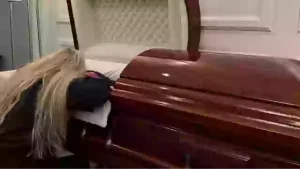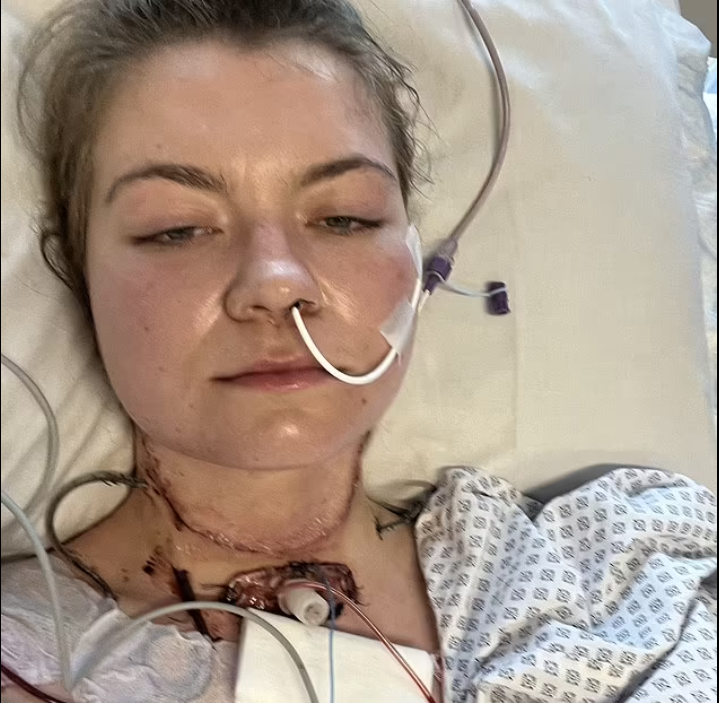A young woman is urging others not to ignore persistent mouth sores, after a seemingly harmless ulcer turned out to be a deadly cancer that cost her part of her tongue.
Jessica Tappenden-Rowell, 23, from Scarborough, North Yorkshire, initially thought the sore beneath her tongue — which first appeared in May last year — was just a sign of stress or exhaustion from work.
However, within months, the pain worsened so dramatically that eating or even yawning would bring her to tears.
“It started to change — there was more redness and small white bumps formed around it. I could tell it wasn’t healing,” the carer said.
Despite this, Jessica never imagined it could be anything serious.
After seeking advice from her GP, she was referred to York Hospital, where a biopsy revealed devastating news: she had stage one squamous cell carcinoma, a form of mouth cancer that develops in skin cells.
“It felt like I had been punched in the face,” Jessica recalled.


Warning signs include persistent mouth ulcers, unexplained lumps, white or red patches inside the mouth, and changes to speech or swallowing.
Jessica underwent a complex procedure known as free flap surgery, where doctors removed part of her tongue and rebuilt it using tissue, a vein, and an artery from her forearm.
Following the operation, she woke up in intensive care, unable to speak properly and restricted to a soft-food diet for two months.

Today, nearly a year later, she has regained much of her speech but still struggles with eating — especially sticky foods like chocolate — and has lost sensation and taste on the right side of her mouth.
Remarkably, her reconstructed tongue now even features a tattoo from her forearm — the initials “BOA,” a nod to the Bloodstock Open Air Festival she once attended.
Thanks to the surgery, Jessica is now cancer-free.

“When my surgeon told me, he was so emotional he nearly cried,” she said. “It’s incredible what medicine can achieve.”
Doctors reassured her that her lifestyle habits — including occasional vaping and drinking — likely didn’t cause her cancer, stressing it was simply “bad luck.”

Jessica is now passionately raising awareness about the importance of getting persistent mouth ulcers checked early.
“If you have a sore in your mouth that doesn’t heal after two weeks, please don’t ignore it,” she urged. “The sooner it’s found, the less drastic the treatment.”









